FEATURES|COLUMNS|Creativity and Contemplation
Can Small Farms—and Large Gardens—Save the World? Part One
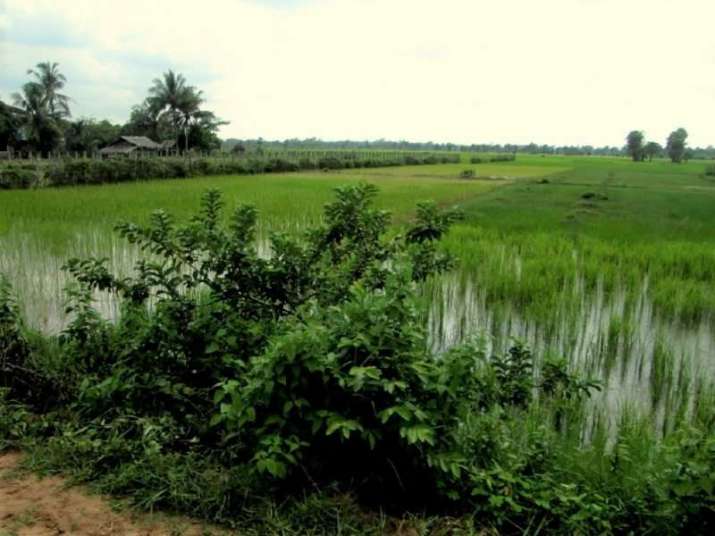 A small family-owned farm in Cambodia. Photo by Sarah C. Beasley, 2017.
A small family-owned farm in Cambodia. Photo by Sarah C. Beasley, 2017.Amid a world so concerned with “getting back to normal,” I propose that we actually need to go back a number of decades—maybe 60–70 years, even—to recover an all-around sustainable, more humane approach to “normal.” Specifically, we need to go back to a time when more people were more connected to the earth through the cultivation of crops and the husbandry of animals for sustenance, in symbiosis with the Earth and her cycles.
I recently watched the film Kiss the Ground (2021), which has forever changed my perspective on what earth actually is. The film is about saving our soils globally, restoring them to a state of nutrient-richness alive with microorganisms, as the basis for all human, animal, insect, and vegetable life, and especially for a sustainable climate. I had no idea how intimately intertwined the changing climate and the retention of the world’s vital topsoil are—they are essential for our very survival. As creatures made up largely of other microorganisms, we are wholly dependent on a multitude of living, thriving, unseen beings.
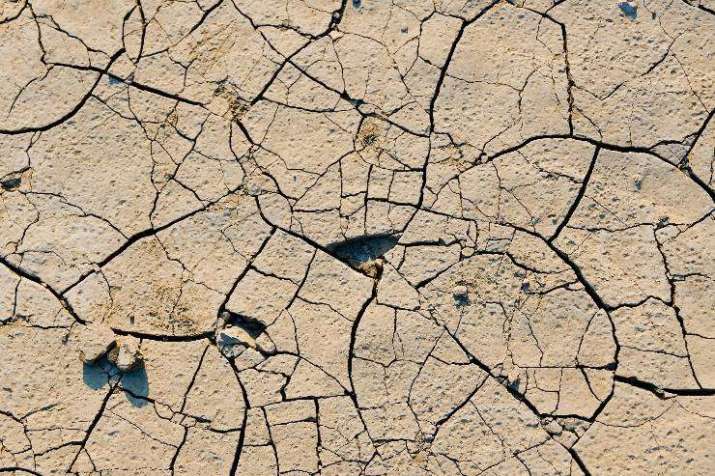 Desertification. Photo by Anton Ivanchenko
Desertification. Photo by Anton IvanchenkoSoil loss is taking place on an epic scale: one third of the world’s topsoil has already been lost to commercial farming practices, erosion, and desertification. These activities also cause global warming and increasingly intense climactic changes. Healthy soils absorb water and carbon dioxide, but the opposite is now ccurring: once-vital soils are releasing water and carbon dioxide, resulting in desertification. Examples abound. However, there are also places, such as China, South America, the US, and elsewhere, where farmers are committed to soil restoration. Whether rooted by seedlings, grasses, or trees, the soil needs plant life to sequester carbon and to retain water, to stabilize the climate, and to prevent water erosion and wind-borne soil loss. Desertification is a vicious cycle that continually leads to hotter microclimates, scaled to larger and larger areas. Then macro-climatic changes become the norm and we have dramatic climate change, or as one friend calls it: “global weirding”—hotter hots and colder colds, as well as hurricanes, floods, droughts, and all manner of extreme weather conditions. These events lead to the displacement and endangerment of already marginalized communities, the loss of animal life, and the depletion of entire species.
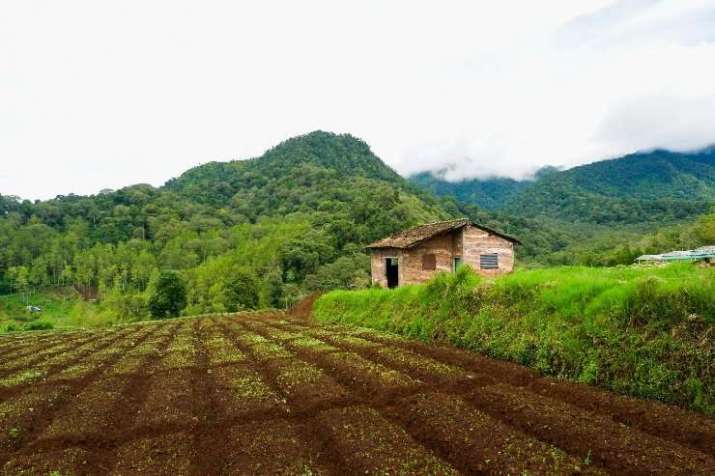 Symbiosis. Photo by Aldrin Rachman
Symbiosis. Photo by Aldrin RachmanAccording to the United Nations, we have a mere 60 years left before the world’s remaining topsoil has blown away as dust, when nothing will be cultivatable. This is a terrifying thought, which should give us each great pause. I may not have my children of my own but that does not mean that I don’t feel responsible for helping to ensure that current and future generations will have access to food, shelter, and a habitable climate for all life. Therefore, our imperative as Buddhists, as activists, as humans of any persuasion, ought to be preserving vegetation, soil, clean water, and air, and reversing the ominous trajectory of soil loss and degradation.
How is farming an issue for Buddhist or spiritual practitioners? It is the ultimate form of enacting wisdom-compassion, a skillful means to provide what beings need, within the context of knowing there is no time to waste. There is also no soil, water, air, or ozone layer to waste! Although these actions may be relative, if held within the ultimate view that meeting the needs of beings beyond our own narrow circle is the swift path of generosity, they become forms of enlightened living to benefit all. Rather than only stepping in after a natural disaster, we could be helping to prevent future crises—especially those of a catastrophic or irreversible nature, such as loss of soils, clean water, or air, species extinction, or the loss of human life.
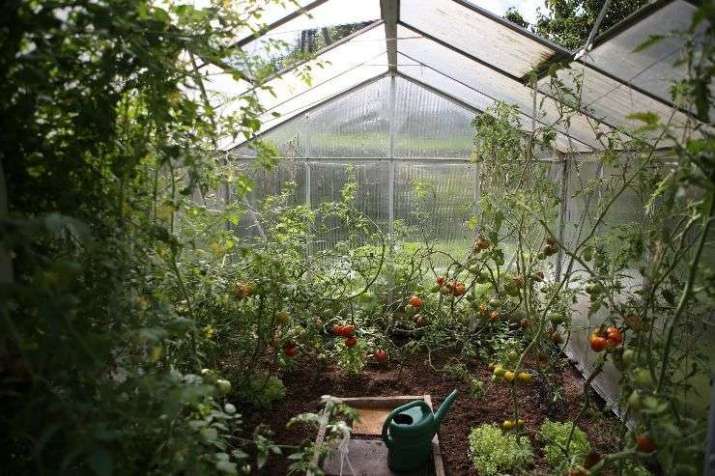 Photo by Zanda Photography
Photo by Zanda PhotographyThe main point of Kiss the Ground, as well as resources like the book Drawdown (Penguin 2017), is that we can sequester carbon back in the soil and cultivate crops in regenerative ways, as opposed to large-scale tillage and pesticide-reliant commercial farming. Small farms are uniquely positioned to provide avenues of sustainability through various means, all of which require multicropping as opposed to monocropping. Small family farms and large gardens worldwide have been doing just this for centuries, if not longer.
Permaculture methods include organic, sustainable, biodynamic, regenerative, market gardening, urban farming, forest gardening, hydroponics, aquaponics, nomadic herding, and bee farming:
Permaculture farming is a method of agriculture that is based on sustainability. It moves away from harmful commercial agricultural practices like monoculture, annual tilling and other farming methods that lead to soil erosion, and the use of pesticides. Permaculture can be defined as a permanent cultural system that is based on observing nature. It is all about working with nature instead of going against it. (Grocycle)
The term permaculture carries a dual meaning: permanent cultivation and permanent culture. Cultivation is literal: food crops and supportive vegetation, as well as interwoven systems of farming or gardening. The culture aspect means living in a way that is sustainable for beings and the environment as the support for the survival and thriving of all. Permanent means enduring for the long-term in ways that regenerate rather than deplete. Imagine if we applied these principles to everything we do, including livelihood, relationships, and our meditation practices!
Permaculture is an approach to land management and philosophy that adopts arrangements observed in flourishing natural ecosystems. It includes a set of design principles derived using whole systems thinking. It uses these principles in fields such as regenerative agriculture, rewilding, and community resilience. (Wikipedia)
Permaculture is the antidote to the large-scale commercial farming that is destroying our climate and ecosystems through toxicity and soil loss. Engaging in permaculture at any level is a form of engaged Buddhism: the act of helping all sentient beings through practical measures.
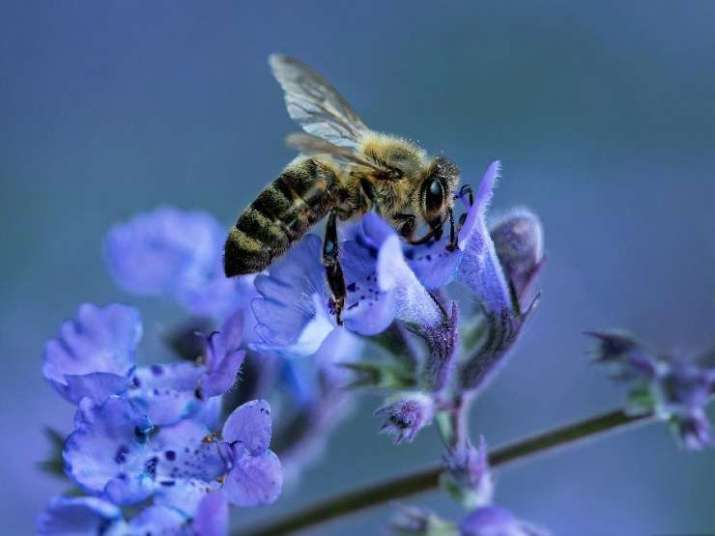 Photo by Lukasz Rawa
Photo by Lukasz RawaWhile this article has examined the topic of regenerative farming, part two will go into more depth about how small farms and large gardens work and how each of us can participate, whether we live deep in the city or deep in the countryside. Sustainable farming is within reach no matter which country we live in, for even the most modest of budgets, because one way to accomplish this goal in the short term is to join energies with neighbors, sanghas, and even at work, to begin with a humble plot or planters on the roof, to begin to reclaim lost soil, water, organisms, and vegetation that all beings need to thrive on our shared Earth.
Stay tuned for further inspiration next month! And in the meantime, give thanks and a bow to your fellow organisms, no matter how big or small. We are all interdependent.
 Photo by Johan Redman
Photo by Johan RedmanSarah C. Beasley (Sera Kunzang Lhamo), 2019 Nautilus Gold award-winning author of Kindness for all Creatures: Buddhist Advice for Compassionate Animal Care (Shambhala 2019), has been a Nyingma practitioner since 2000. Sarah is a certified teacher and an experienced writer and artist, with an MA in Educational Leadership and a BA in Studio Art. Sarah spent six years in traditional retreat under the guidance of Lama Tharchin Rinpoche and Thinley Norbu Rinpoche. With a lifelong passion for wilderness, she has summited Mount Kenya and Mount Baker, among other peaks. Her book and other works can be seen at www.sarahcbeasley.com.
See more
Kiss the Gound
The Key to Saving Family Farms Is in the Soil (EcoWatch)
Why we need small farms (National Geographic)
Farming could empower millions of women across South Asia - here's how (World Economic Forum)
‘UN Report Says Small-Scale Organic Farming Only Way To Feed The World’ (Off Grid World)
Family Farms Continue to Power U.S. Agriculture (US Department of Agriculture)
Permaculture (Wikipedia)
21 Of The Best Small Scale Farming Ideas (Grocycle)
Related features from Buddhistdoor Global
Right Mindfulness and Vegetable Gardens
Teachings from the Vegetable Patch
Green Shoots of Hope – Youth Climate Leaders in Asia and Africa
Buddhistdoor View: Overcoming Our Denial of Responsibility for Climate Change
One Foot on the Cushion and One in the Streets — Meditators for Climate Action
Buddhistdoor View: The Pandemic – Nature’s Patience Has Run Out
Environmental Warriors: Buddhist Eco-monks and Tree Ordination
Climate Justice – Activating Compassion for Peoples, Wildlife, and Our Environment
More from Creativity and Contemplation by Sarah C. Beasley
Buddhistdoor Global Special Issue 2021: Humanity in Transition














